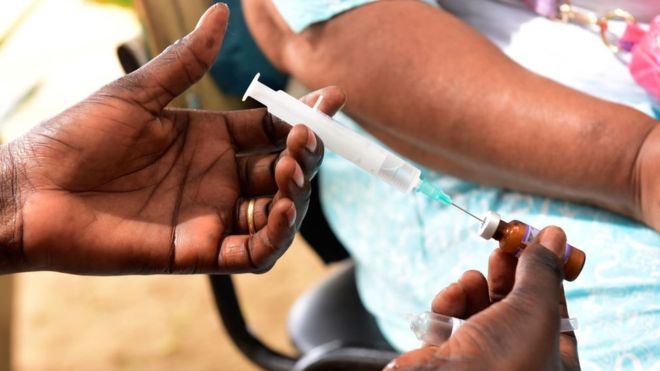The president chaired a meeting at State House, Nairobi/PSCU
President William Ruto has lifted the ban on open cultivation of genetically modified (GM) crops after 10 years
This follows the recommendation of a task force that was put in place to review matters relating to GMOs and food safety.
The lifting of the ban, as noted in a press statement from the Executive Office of the President, happened during a meeting between the President and the Cabinet to deliberate on the ongoing drought in 23 arid and semi-arid lands, and to review the ongoing humanitarian support and provision of relief food in those areas.
“In accordance with the recommendation of the Task Force to Review Matters Relating to Genetically Modified Foods and Food Safety, and in fidelity with the guidelines of the National Biosafety Authority on all applicable international treaties, including the Cartagena Protocol on Biosafety (CPB), Cabinet vacated its earlier decision of November 8, 2012, prohibiting the open cultivation of genetically modified crops and the importation of food crops and animal feeds produced through biotechnology innovations; effectively lifting the ban on genetically modified crops. By dint of the executive action open cultivation and importation of white (GMO) maize is now authorised,” read the statement in part.
Long term responses
“As part of the medium to long term responses to the ongoing drought, and as a progressive step towards significantly redefining agriculture in Kenya by adopting crops that are resistant to pests and disease, Cabinet also considered various expert and technical reports on adoption of biotechnology; including reports of the Kenya’s National Biosafety Authority (NBA), World Health Organization (WHO), the Food and Agriculture Organization (FAO), United States of America’s Food and Drug Administration (FDA), and the European Food Safety Authority (EFSA),”added the statement.
According to the statement, the ban was preceded by a decision made by the Cabinet on December 19, 2019 to commercialise the production of a variety of cotton that is genetically modified, and which is resistant to pests.
“That earlier approval by Cabinet sought to revamp production of textiles, apparel, feed, and oil industries towards the realisation of the industrialisation; and today’s Cabinet decision builds on it and also extends its benefits to other agricultural and manufacturing sectors,” read the statement.
The Cabinet also discussed matters of climate change adaptation, how to promote irrigation, planting of drought resistant crops and implementation of early warning and response mechanisms that are activated at the very start of adverse situations rather than later, when the situations have escalated into disaster conditions.
On November 8, 2012, President Mwai Kibaki banned GM food, following safety concerns about the food by then-Minister for Public Health Beth Mugo. She had cited a study that had been released then that linked cancer in rats to consumption of GM foods, a concern that was backed by the Kenyan Medical Research Institute (Kemri).
According to the WHO, the intention of developing plants based on genetically modified organisms is to improve crop protection, by ensuring that the plants are resistant to diseases caused by insects or viruses. This is done by altering the genetic material or DNA of plants using modern technology.
All GM foods
WHO adds that when it comes to safety, individual genetically modified foods and their safety should be assessed on a case by case basis, and that general statements should not be made on the safety of all GM foods.
“GM foods currently available on the international market have passed safety assessments and are not likely to present risks for human health. In addition, no effects on human health have been shown as a result of the consumption of such foods by the general population in the countries where they have been approved.
Continuous application of safety assessments and, where appropriate, adequate post market monitoring, should form the basis for ensuring the safety of GM foods,” says WHO.
The Cabinet was also informed about the upcoming national examinations for students of Grade six, Standard Eight and Form Four, which will be from November 28 to December 23, 2022. The Cabinet also reaffirmed the ongoing reforms at the National Hospital Insurance Fund and asked eligible Kenyans to register for the cover.
-The Nation





